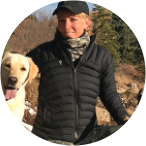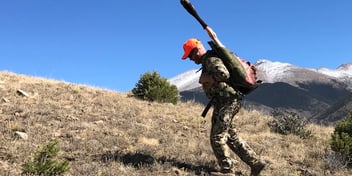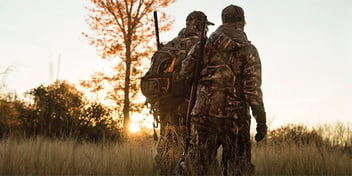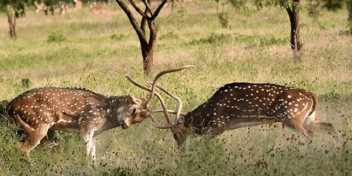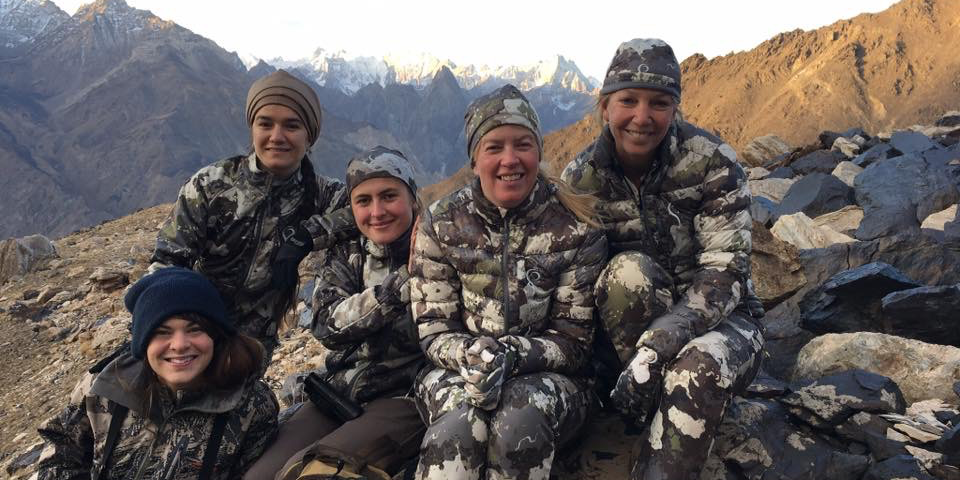
High altitude hunting can be a challenge, especially if the hunter has not adequately planned and prepared for this excursion. Often, hunters cash in countless acquired points on a dream tag or they may spend a small fortune on a guided hunt in a mountainous region only to be bitterly disappointed by altitude sickness, lack of physical performance, or poor preparation. Interestingly, altitude-related issues can be somewhat remedied with careful planning and mitigation.
Physical Preparation
High altitude hunting can be a challenge, especially if the hunter has not adequately planned and prepared for this excursion. Often, hunters cash in countless acquired points on a dream tag or they may spend a small fortune on a guided hunt in a mountainous region only to be bitterly disappointed by altitude sickness, lack of physical performance, or poor preparation. Interestingly, altitude-related issues can be somewhat remedied with careful planning and mitigation.
Climbing
Be prepared to climb up. A lot of up. It’s just the nature of mountains and I can attest to the fact that you can indeed walk uphill both ways. To prepare for this, I suggest beginning cardio training in addition to overall muscle strengthening routines. I am a huge proponent of High-Intensity Interval Training (HIIT) such as T-25 or Insanity. These quick routines do not take too much time and will pay out in spades if you adhere to the routine. You will achieve overall body muscle tone and weight loss to boot. Added to cardio workouts 2-3 times weekly, you will be so far ahead of the game when you arrive for your hunt. I recently hunted in Tajikistan and used these training tips myself. I found myself hunting at 16,000 feet and tolerated the physical strain quite well. And if I can do it, you can do it.
Another point to consider, don’t be fooled by horseback trips. While you will be riding a lot of the time, you will NOT be riding all of the time. Be prepared to hike a lot. Horses can’t reach all areas and you will need to be capable of hiking steep and difficult terrain. I would strongly suggest training just as hard for a horseback trip as you would a hiking hunt.
Elevation Preparation
Often, altitude sickness can affect any person of any age or any physical condition. The altitude just doesn’t care. Here are a few tips to help combat altitudism:
- Arrive early to acclimate. 1-2 days is often plenty to allow your body time to get used to the altitude and reduction in oxygen.
- Hydrate well before you arrive. Drink plenty of water while you are at altitude. I recommend 1-2 liters minimum daily.
- Pay attention to signs and symptoms. Headaches, stomach distress, and dizziness are not uncommon and will often dissipate over a couple of days. However, if you notice difficulty breathing, a frothy cough, or confusion- these may be signs of a medical emergency and you should get down in elevation immediately.
- Don’t over-exert early in the trip.
- Avoid alcohol and tobacco if possible.
- For very high altitude hunting, consult your physician to see if Diamox would be recommended to help alleviate the effects of altitude.
Prepare for the Cold
I know this sounds very simplistic, but I cannot tell you how many hunters we received in the ER with hypothermia, even in early seasons. The reason? Lack of preparation. While September can be a warm month, mountains may also have unexpected weather that could be fatal if a hunter is not prepared. Here are some tips:
- You MUST layer clothing in the mountains as you will be sweating one minute and shivering the next. I recommend merino wool baselayers. I then suggest an insulator layer such as a down jacket topped with a shell that has a wind stopper and waterproofing. You should never hunt at altitude with the idea of using one big, fat heavy jacket. This won’t work for you and the results can be catastrophic. Plan for snow, rain, cold, and heat. A well-thought-out layering system will be your very best bet.
- As obvious as it sounds, watches extended weather forecasts. If a foot of snow is expected in your area, count on two feet in the backcountry.
- ALWAYS keep adding layers and accessories such as hats and gloves in your pack. I also always pack fire starters for an emergency.
Think Weight
-
No, I don’t mean your weight… I mean the weight of your pack and weapon. Remember, even if you are in shape, you will be packing up and down the mountains, and over-packing will not only be a frustration, it can add strain to your body.
- Pack necessities in your pack. Trim down what you don’t need. You most likely don’t need 4 pounds of food if you are out on a day hunt. Keep it simple… headlamps, optics, knives, fire starter, nylon cord, hat/gloves, range finder, and light snacks. Get rid of all of the other garbage. You don’t need it for day hunts.
- Water is essential. But think it through. If you have a hydro pack… fill it up. If you are experiencing hot weather, perhaps bring additional water. For me, if I am hunting in a water-rich environment, I only bring a Lifestraw which weighs next to nothing and lets me drink filtered water right out of the streams.
Lifestraw also makes bottles that filter and I highly recommend one of these if you are not interested in using the straw. Just fill it up and drink out of it- it filters 99.999% of bacteria and protozoa.
-
- Think about weapon weight and how you plan to carry it. Strapping a bow or firearm to your pack is much easier on the body than lugging it along on a sling.
- Think about weapon weight and how you plan to carry. Strapping a bow or firearm to your pack is much easier on the body than lugging it along on a sling.
Ballistics & Trajectory
While I am far from any sort of expert on this matter, be aware that high altitude does indeed change the trajectory of your bullet or arrow by virtue of the fact that air is thinner and has a lower density. In general, the higher the altitude, the less the bullet or arrow will drop. This is simply something for consideration and each hunter can determine if this will be a factor in his/her shooting.
Shooting Uphill & Downhill
Again, I realize this sounds somewhat basic. However, hunting in the mountains will almost always result in taking a shot either uphill or downhill. If it doesn’t- you are one of the lucky ones! Practice these shots before you arrive so you have an idea of how to adjust for these shots. I definitely recommend practicing with your shooting sticks, your pack or anything else you will be using to secure your shot so you can be best prepared. Lord knows you do not want to risk this shot of a lifetime due to lack of preparation.
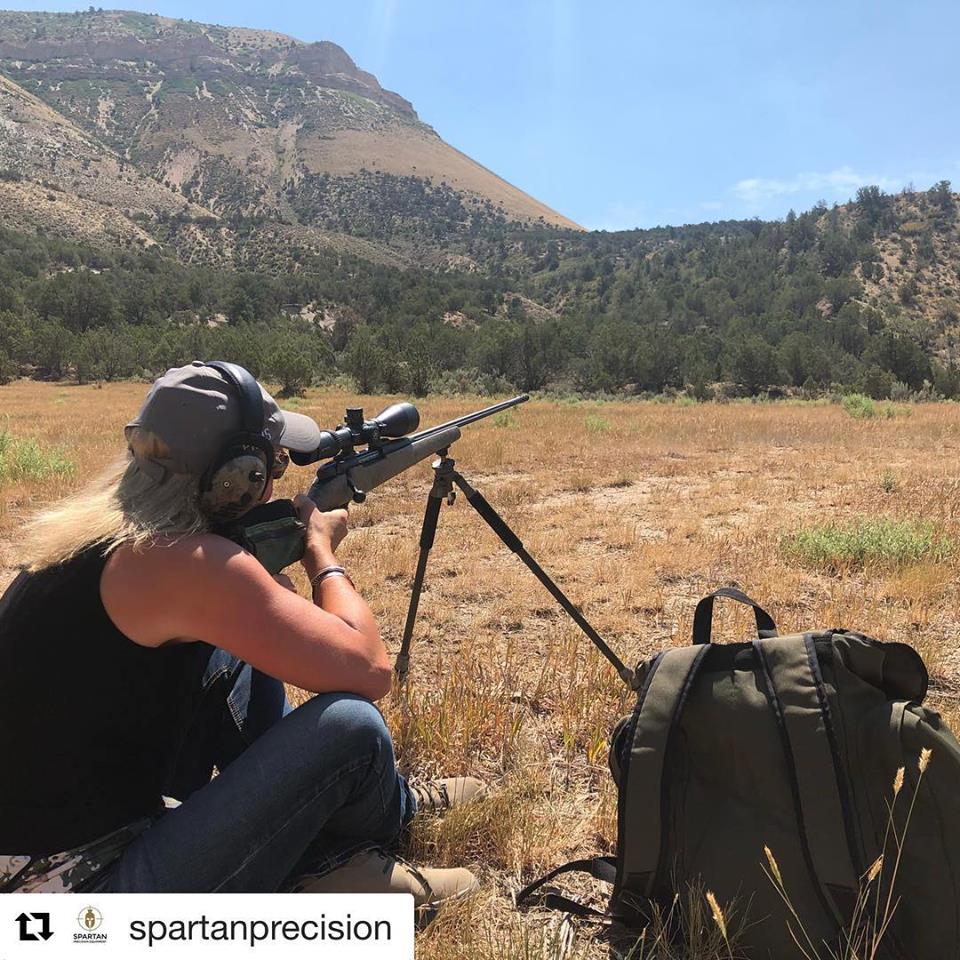
Ask Questions
If you are hunting with an outfitter, ask every sort of question you can think of regarding gear, packing, and altitude. Also, it doesn’t hurt to speak with the local Fish and Wildlife agency for any recommendations they may have. If you have medical problems, you should also be aware of where the nearest hospital or urgent care clinic is.
With some careful planning and commitment, your hunt of a lifetime in the mountains will be safe, comfortable, and successful!
About the Author
